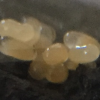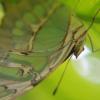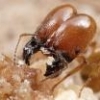Hey guys,
First year doing this and I have two little concerns that maybe someone can address.
It seems that when people go queen hunting they try to catch upwards of 15 or more queens sometimes.
My first concern is, at what point should you be concerned of catching too many queens to have an effect on the local environment? I caught 6 queens this summer: two tetramorium, two crematogastor, and two camponotous (one died within a few days and the other has yet to lay eggs or shed her wings ~2 months later). With my 6 queens I began to wonder how this would effect my local ecosystem. But in all my online reading it doesn't seem uncommon for people to catch a boat load of ants. I saw one post on a different forum with someone who boasted 50+ queens in one summer. I have seen many posts on this forum with 10+ queens. and Various information elsewhere citing anywhere from 10-30 queens of one species. And I sometimes see this done for multiple species, that could easily be hundreds caught by one person!! Some people set up black lights to trap queen ants as well. Does any of this set off alarm bells for others? Or am I just crazy?
Which leads to my second concern, what do you do with the extra colonies. Let's say you catch 15 queens. You plan on, for various reasons, only 5 making it. But actually 12 colonies make it, which you cannot house and maintain. What does one normally do then with extra colonies?
In my case of 2 colonies of tetramorium, I honestly would only want to keep one, but am now stuck with two. Right now it's no problem, but in five years when I have two mature colonies that's a large difference than one mature colony. Obviously these numbers are small, but one can easily scale that up. I can't imagine having more than 5 young colonies to figure out housing for after a few years of growth, let alone 15. Naturally, this would change from person to person (climate, housing, $$, various other things), but once again, the idea is scalable.
Thanks guys
Edited by matt123, September 21 2017 - 10:29 AM.






















